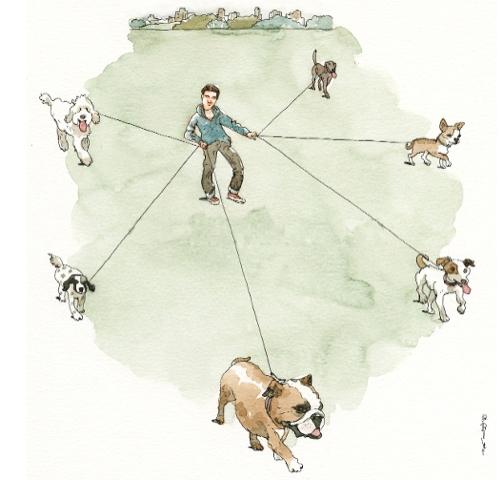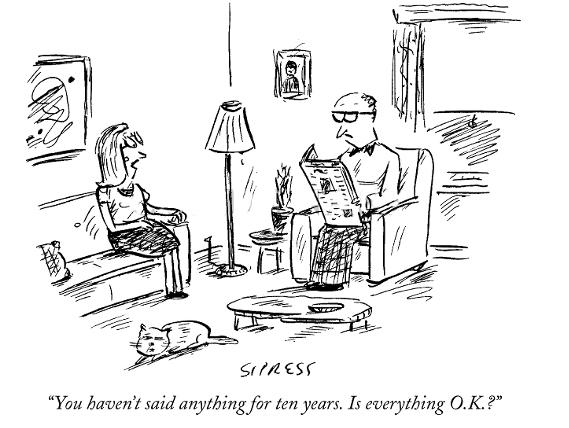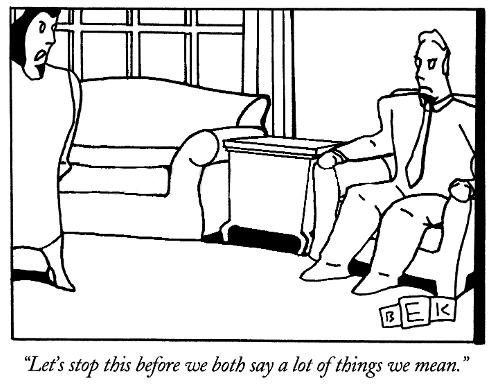


++++++++++++++++++
Visit the website
and take the free survey to identify what's standing between you and more joy, love, and peace.
|
I am pleased to announce the reprinting (and slightly edited) version of
Attitude Reconstruction.
It includes a revised "action" chapter, full Blueprints on the inside front and back cover, and little futzes here and there. Available, signed, sealed, and
delivered for only $15.00 (includes tax.).
Great for these times for all those special people in your life!
|
|
Praise for AR and the newsletter.
Great last issue, Jude. I enjoyed it, and learned some good stuff.
|
|
|
|
Greetings dear ones,
I trust you are all taking good care of yourselves and being helpful and cooperative with those around you. Please remember to repeat the helpful reliable truths when you get antsy or notice you're projecting into the future. "We'll see" and "In it's time." You'll spare yourself wasted energy if you go with the flow rather than resisting what is out of your control.
But enough of that. I thought a review of the Four Communication Rules would be appropriate as many of us find ourselves in close proximity with people who we deem difficult. Especially when we're emotionally overwhelmed, it's easy to get lax and lapse into communication violations that do nothing for ourselves or others.
But first...
A Few Articles
Fun Videos
The newsletter's tulip theme was inspired by this video of the
Keukenhof Gardens in Amsterdam. Maybe next year...

|
Experience the Difference
According to Attitude Reconstruction there are only four rules of good communication and four opposing violations. Being aware of both gives us a choice about whether we want distance or closeness with our words. Here are some examples of two ways of communicating about the same topic.
You never help with the dishes.
I need some help washing the dishes right now.
Are you ready to go home?
I'm ready to go home now.
You're monopolizing the conversation.
I have something I want to say.
We always do what you want to do.
I don't want to spend the weekend with your parents.
This isn't working.
I want to talk about where we are in our relationship and discuss what our options are going forward.
What's your problem?
I'm upset and want to talk about what just happened.
Just by reading each pair of sentences out loud you can sense that the first way is way too familiar and that the second way is a clear communication about yourself that brings understanding. It's really so simple. However, becoming aware of the difference and making the switch in styles takes a bit of practice.
The bottom line is that when we abide
by the Four Rules we honor ourselves and others with every exchange and increase the probability of finding connection and common ground. When we break the rules, we create distance and feelings of separation.

|
|
Jude's Musings
I remember when I was just piecing together that there were only four rules of good communication. In particular, I remember becoming acutely aware on a visceral level of the difference between "you's" and "I's". I noticed that every time I was issuing a "you" I could literally feel in my body the wrongness of what I had just said. What a yucky feeling! Now, many years later, I still ask the other person if I have permission to offer an opinion before stating an observation about "them." Not only do I ask and receive permission first, but I ask a second time before venturing out of my territory, just to make sure they are not being polite or non-assertive.
I also remember how good I felt when I spoke up and stated my opinion, wants, needs, boundaries, etc. about whatever the topic. I was putting myself out there and taking my place as an active contributing member of society. Speaking our "I" is the epitome of taking personal responsibility. The very act of communicating this way, makes us feel strong, and proud about who we are.
One more thing about the tendency to "you" others. It indicates that our focus is on them rather than ourselves. That's the key to good communicating: sharing ourselves in a constructive way that produces understanding and connection. Today when I find myself wanting to "you" or judge someone in a less than positive light (outward focus), I know that I'm feeling some anger and definitely NOT accepting that "people and things are the way they are, not the way I want them to be." So I'll remind myself of the reality that I need to accept what is, and refocus on my quest to feel more joy, love, and peace myself!

|
 The First Rule The First Rule
The First Rule is "talk about yourself."
This is our domain. It's a big enough task to take care of ourselves, so believing it's our duty to comment on or interpret others diverts us from focusing on what's true for us about us. It's appropriate to share what we feel, think, want, and need. This brings closeness, as we reveal information about ourselves. Remember that it can take some time to determine what we really believe, feel, or want.
The First Violation is to tell other people about themselves (without permission). This includes blaming, sarcasm, teasing, attacking, and finger-pointing. You're guaranteed to create separation and accentuate differences. I call this "you-ing" because instead of talking about ourselves, we divert attention and put the focus on others with put downs or by making them wrong.
|
 Rule Two Rule Two
The Second Rule is to stay specific and concrete. That's what we do with everything from music to architecture to computers; and what we must do when communicating. When we stay concrete, others can understand what we're saying - the topic, the request, the reasons. It brings peace.
The Second Violation is over-generalizing. This can take the form of sweeping conclusions, abstractions, and labeling. Using words like "always" and "never", or bringing in other topics barely related to the subject at hand, all fall into this category. This is confusing at best, as we don't really know what the message is. It fuels fear.
|
|
|
Rule Three
The Third Rule is kindness.
Compassion fosters love. It can take many forms: offering appreciations, praise, focusing on the positive, and sharing gratitude.
The Third Violation is being unkind. Focusing on what's not working or what we don't like, throws a wrench in furthering the conversation. It produces anger and feelings of separation in the recipient.
|
Rule Four
The Fourth Rule is simply to listen
. That means seeking to truly understand what someone is saying, and encouraging their speech. Almost no one feels listened to enough! Listening is a practice that brings closeness. The next section of this newsletter will elaborate on this essential skill.
The Fourth Violation is not listening. We know how that feels. Not good. Automatic interruptions, debates, and wise-cracks don't truly acknowledge the speaker but instead further our own agenda and need for attention.
The following is a list of listening violations or don'ts. I suggest you memorize them and review often.
* Interrupting
* Leaping into problem solving
* Offering unsolicited advice or opinions
* Finishing others' sentences
* Changing the topic
* Matching stories
* Debating or challenging
* Cornering or interrogating
* Multi-tasking
|
| Final Pitch
We don't have to look very far to find examples these violations. They are in virtually every setting and cause communication breakdowns, distance, hurt, and misunderstandings. Violations stem from unexpressed emotions -
sadness, anger and fear, but that's a whole other topic. Recognizing these four bad communication habits will help us avoid the alienation and confusion we often experience when interacting with others, especially at emotionally-charged times. Resorting to them is like throwing gasoline on the bar-b-que.
Observing the four rules on the other hand, bring loving, effective communication and feelings of connection. Remember: share your own experience, use specifics, stick to kindness, and listen. They are very simple (but not easy) rules. The rewards of living by them are infinite and supremely satisfying.

|

Hey Jude,
I enjoy teasing and kidding. It's my humor. Are you suggesting that I give it up?
You're asking for trouble with this kind of communication style. You are "you-ing" other people, and your fun is at their expense. What you call humor has an angry edge and hurts other people, causing them to become cautious around you. Stick to the "I's" and specifics, and I promise that you and others will feel more comfortable. If you continue with your present style, expect major resistance or lukewarm receptions.
|
|
| |
|